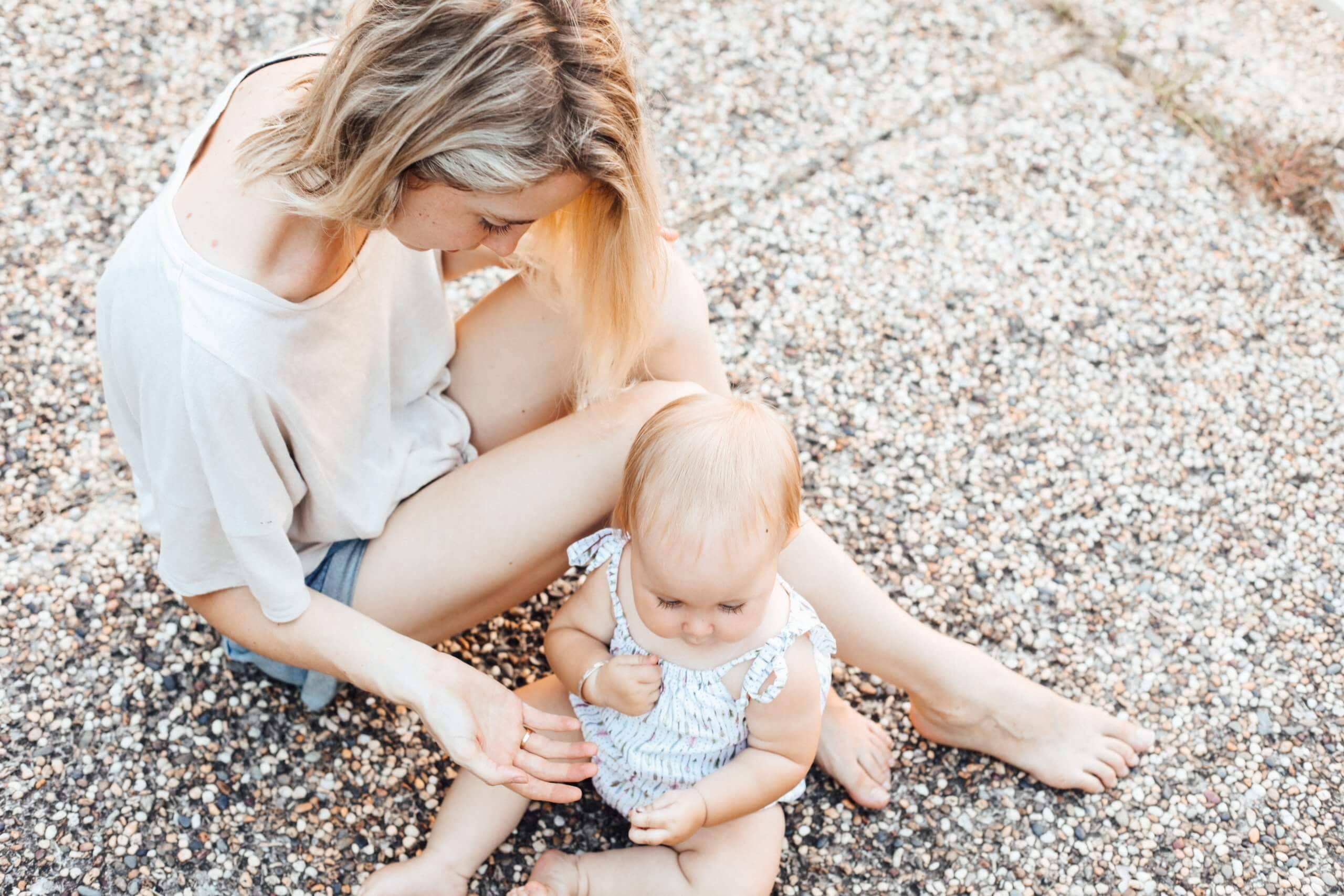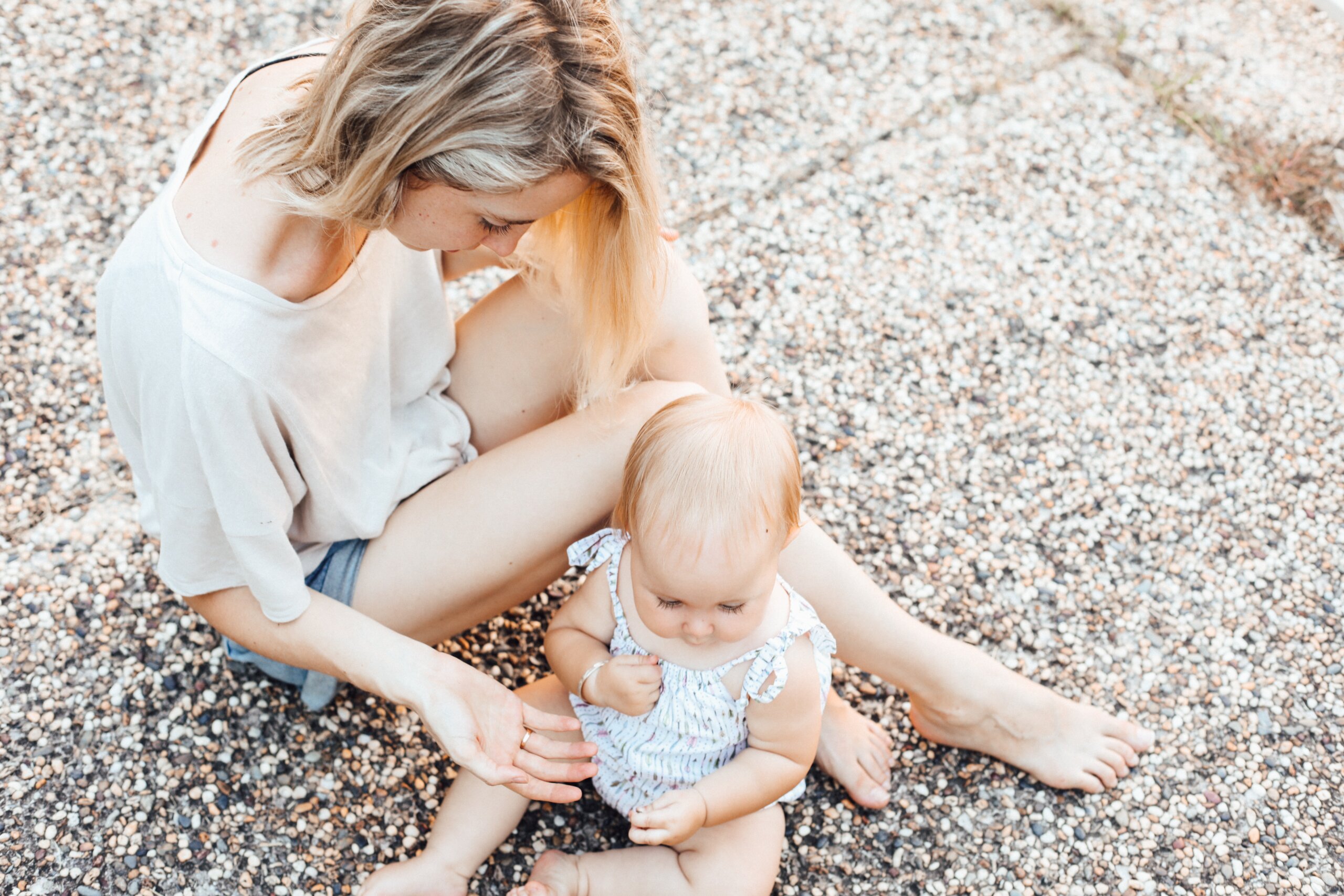Mothering with chronic pain: His grace is sufficient for me


Since being diagnosed with Lyme disease about four years ago, my body has been in a daily wrestling match with chronic pain.
Some days are easier than others, but my pains are usually present to some degree. Though we have every reason to believe the Lyme is gone (praise God for modern medicine!), as my husband and I often say, “The war is won, but the city is ravaged.”
The disease left me weak, and my body has some rebuilding to do.
New opportunities to trust God
Two years ago, my Lyme doctor gave us clearance to try to conceive. This clearance came after years of strong warnings against conception because the risks were too high.
We rejoiced at this good news—my immune system was strong enough, and my body was healed enough, to try to have a child!
Yet—I didn’t know if I could be a mom. In fact, I shrunk back at the possibility.
When we were contemplating our newfound freedom to pursue children, the thought struck fear in my heart.
There’s no way I can be a mom. I can hardly manage our home or do my job without pain, let alone care for another human life.
How would I carry a baby, or hoist a car seat? How would I be able to keep up with an active child? Although the thought of growing our family biologically was incredibly exciting—the idea of motherhood paralyzed me.
Since that season two years ago, we’ve welcomed our daughter into our family. God, in his kindness, has provided all that I’ve needed to carry her, deliver her, and mother her in these early months.
My health has significantly improved, and I’ve found ways to manage my pain. But it hasn’t gone away—the addition of the literal, physical load of a baby has only presented new challenges and with them, new opportunities to trust God and mother in his strength.
My need for Jesus
“For we know that if the tent that is our earthly home is destroyed, we have a building from God, a house not made with hands, eternal in the heavens. For in this tent we groan, longing to put on our heavenly dwelling” (2 Corinthians 5:1–2 ESV).
We may not realize it, and we certainly don’t like to admit it, but we’re all weak.
The world offers us endless tactics to ignore or cover up our weaknesses because they run against the grain of human pride and our desire to be self-sufficient.
But we can’t avoid weakness.
It runs in our flesh, the “tent that is our earthly home.” The discomfort I deal with every day is a manifestation of such weakness, and it’s a constant reminder of my need for Jesus. Chronic pain causes me to groan with “longing to put on [my] heavenly dwelling” in eternity-future, to yearn for Jesus to restore what’s been lost.
But it also reminds me of my ongoing need for Christ to intercede for me moment by moment, right now.
Our physical struggles are pointers to our spiritual need for a Savior—for our greatest need isn’t bodily healing, but healing from the sickness of sin. Apart from Christ, my soul would be chronically lost in my trespasses.
Even after salvation, I am utterly dependent on his grace to fulfill my vocation as a mom, spend myself for his glory every day, and walk by faith until he calls me home to a “house not made with hands, eternal in the heavens.”
My biggest problem is defeated
When I’m acutely aware of the pain in my body, rather than choosing to fixate on it, I have a blessed opportunity to look through it to Christ, my Savior. I can acknowledge my need of his strength and help, and praise him for dealing with my biggest problem by defeating my most dire condition—bondage to sin and death.
When I do sin (often self-pity, grumbling, even anger) and confess it to him, he is faithful and just to forgive, and draws very near as he completes his sanctifying work in my heart.
Chronic pain teaches me (and my daughter) to depend on God. “Three times I pleaded with the Lord about this, that it should leave me. But he said to me, ‘My grace is sufficient for you, for my power is made perfect in weakness.’ Therefore I will boast all the more gladly of my weaknesses, so that the power of Christ may rest upon me” (2 Corinthians 12:8–9).
Unless God chooses to restore me to full strength, giving me the ability to lift more and exercise again, our daughter will most likely see her mom struggle with physical limitations and weaknesses over the years.
We are to boast in our weaknesses
While other moms are running around the park playing tag with their kids, I’ll probably have to enjoy the game from a distance. While other moms are able to wear their kid in a carrier, push a stroller, and don a heavy backpack, I’ll need to lift one object at a time, or recruit someone else to do it for me.
Before becoming a mother, this bothered me and made me afraid: How can I be a good mom if I can’t do all those fun things other moms can? But I’m learning the value of boasting gladly in my weaknesses “so that the power of Christ may rest upon me.”
I’m learning the joy of seeing how good and generous God is to provide all I need each day, even when it doesn’t look like what I want, or think I need. And I’m learning how God can use my physical limitations to draw our daughter to himself.
I don’t want her to see her mom as a person who “has it all together,” but as desperately dependent on Christ, a mom who loves him and rejoices in his strength.
I look forward to the many opportunities I’ll have to talk to her about the importance of prayer, about trusting him to provide, and about relying on his power so he gets the glory.
We have to ask for help
“He delivered us from such a deadly peril, and he will deliver us. On him we have set our hope that he will deliver us again. You also must help us by prayer, so that many will give thanks on our behalf for the blessing granted us through the prayers of many” (2 Corinthians 1:10–11).
Asking for help doesn’t come naturally to us—and our pride only inflates when the world tells us “we can do anything,” that we don’t need help!
But for those of us in Christ, we know our worth and identity don’t come from what we do, but from whose we are. So we are free to admit we’re weak and have limits, and to ask God and other people for help.
My husband is my biggest support in this area. He never ceases to pray for me and serve me.
When my pain is too flared up to grocery shop, he goes for me. When I’m not able to clean our home, he cleans for me. When I’m tired and weak from holding our daughter, he bears her load for me.
In asking for his help, and in receiving it with thanksgiving, I see a picture of how Christ has served (and serves) me by doing for me what I can’t do for myself.
God uses the act of asking for help to grow us in humility and to encourage those helping us.
What service unto the Lord to respond to the need of someone in your church who struggles with chronic illness! And what an act of humility to accept the help of someone who offers it freely without expecting in return, giving them the opportunity to fulfill the law of Christ by bearing our burdens!
Chronic pain points me to the cross
“For [Jesus] was crucified in weakness, but lives by the power of God” (2 Corinthians 13:4).
Jesus was the Messiah no one expected. Rather than claiming a kingdom on earth, as many thought he would, he perished on a wooden cross. He was crucified in weakness at the violent hands of men, and everyone thought that was the end of the story.
But the power of God had the final word. If Christ had not given himself willingly to weakness, our faith would be in vain, and our future, hopeless. But he did.
And now he lives by the power of God, and he promises, by his Spirit, to work his resurrection-life in us, changing us and using all things for his glory.
Through Jesus, weakness is transformed and gives way to truest life. Chronic pain isn’t a dead-end, but a portal to unshakeable hope and eternal strength—to knowing him more.















